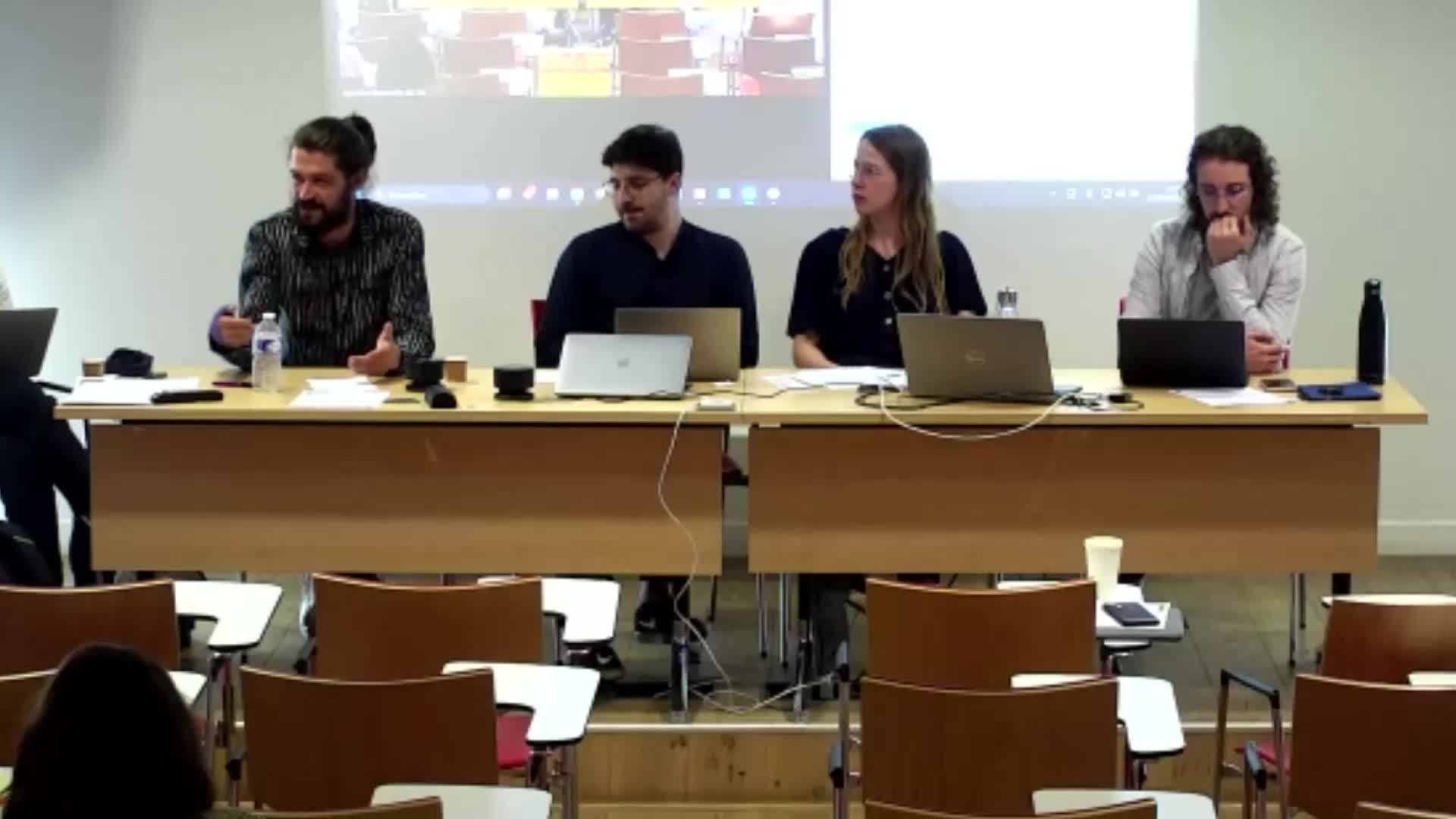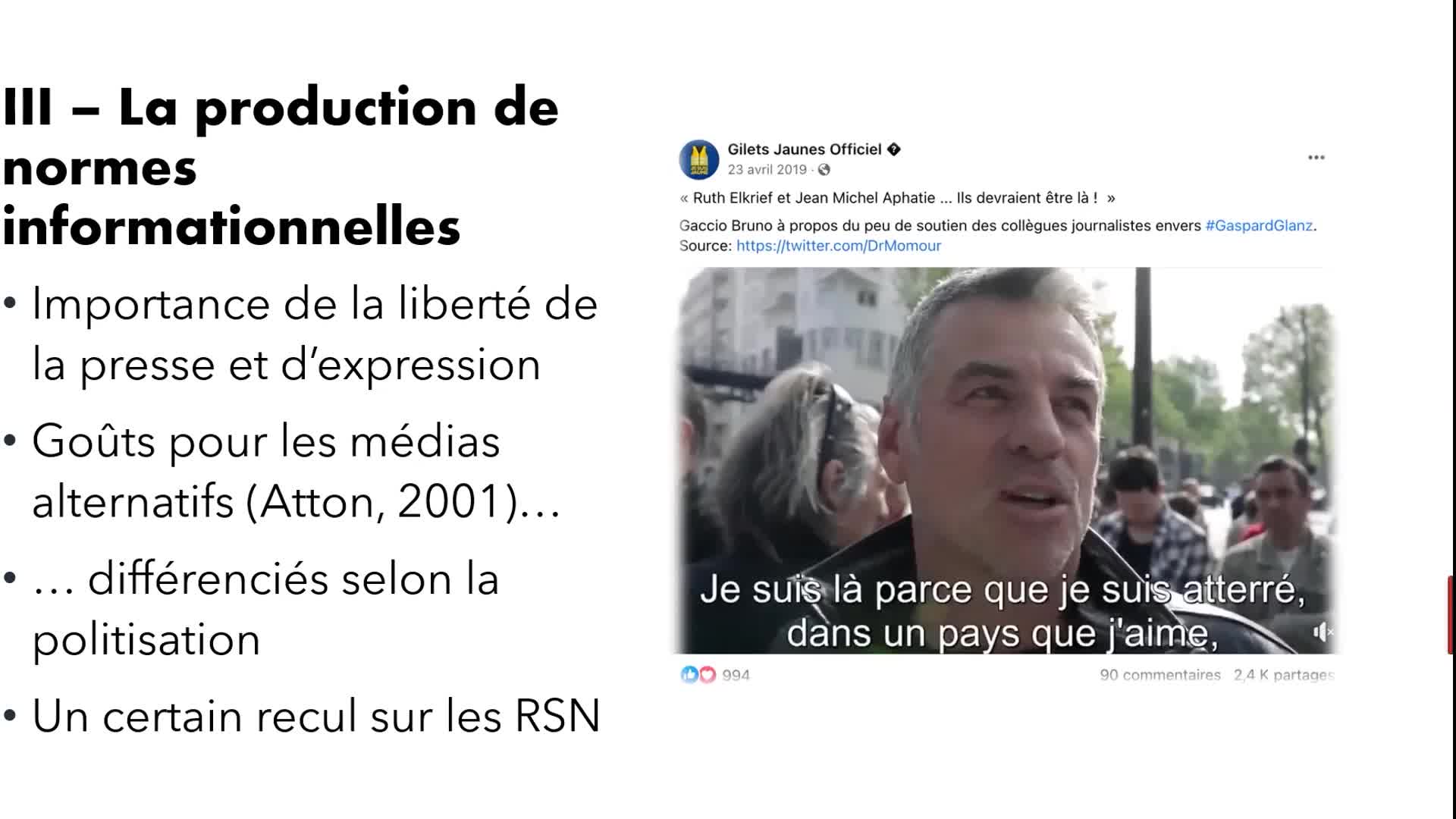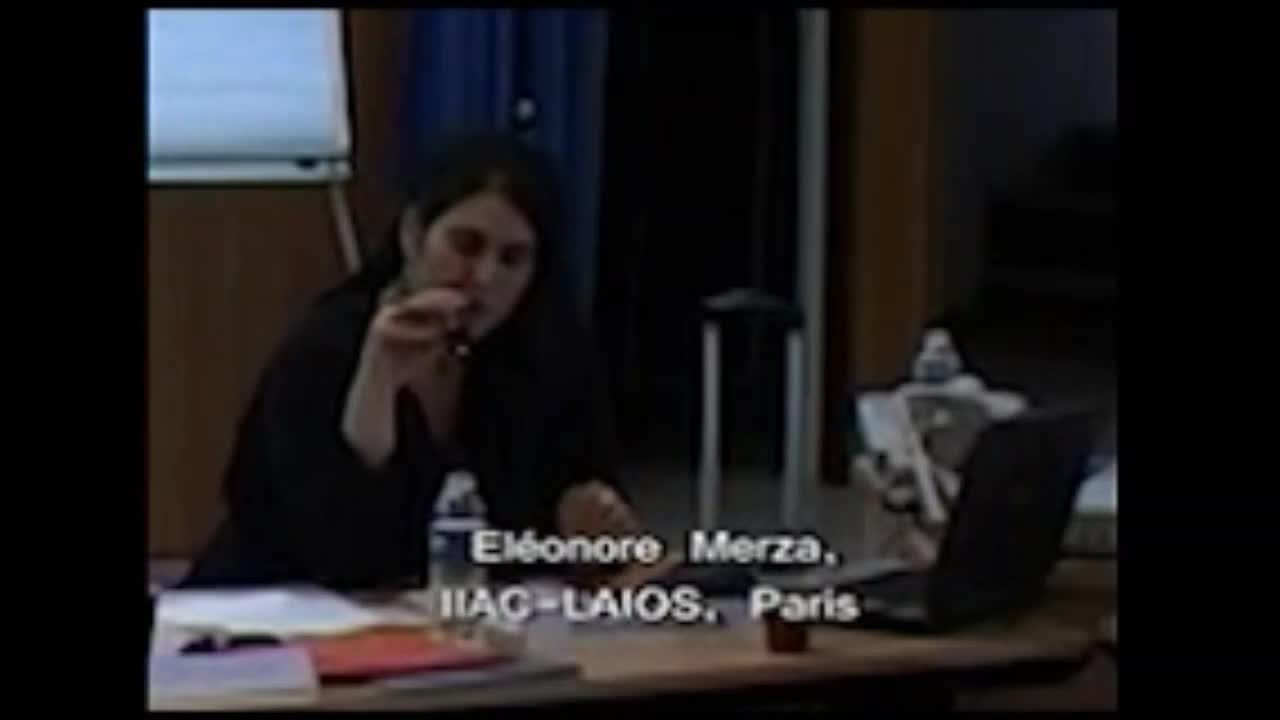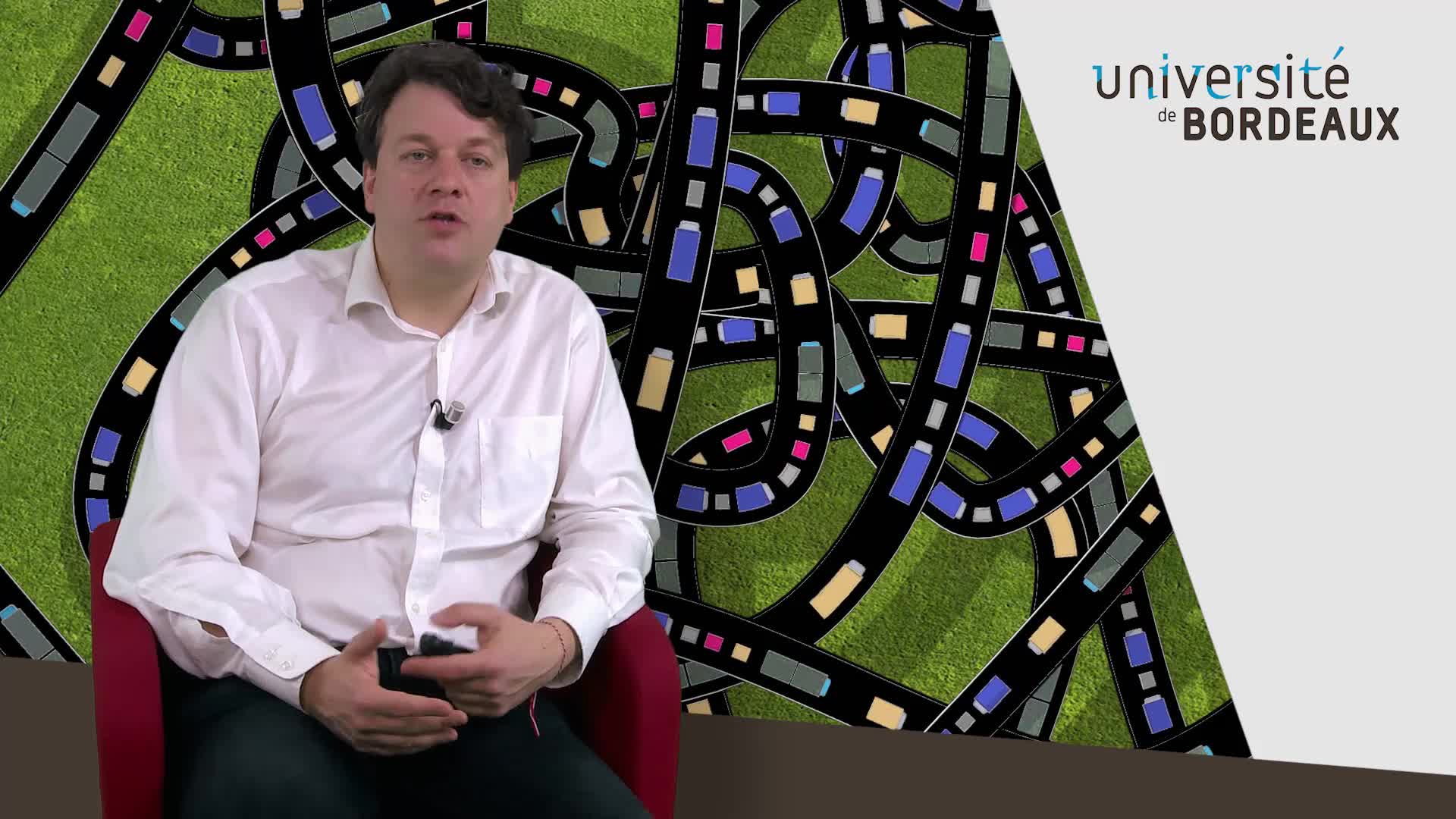Notice
Swarms: First Class Citizens in the Future Internet (série : Colloquium Jacques Morgenstern)
- document 1 document 2 document 3
- niveau 1 niveau 2 niveau 3
Descriptif
The current Internet consists of tens of thousand different interconnected autonomous networks. It was designed to support large populations of point-to-point content transfers. This introduces considerable headaches due imbalances in traffic flows, which has the effect of complicating network management, reducing the robustness of the Internet, and reducing user performance.
In this talk, I review the sources of traffic in the Internet over the last 20 years. We will observe that this an increasing fraction of traffic was generated by peer-to-peer (P2P) "swarm" technology from 2000 to 2007. I examine how and why P2P swarm technology simplifies network management, and makes the Internet and applications more robust. Unfortunately, the use of this technology has decreased since 2006 and shows every sign of continuing to do so. Thus, the rest of the talk focuses on and characterizes an architecture that encourages and makes swarms full class citizens. I will focus not only on the problem of transfering content but also on the problem of locating content.
Intervention / Responsable scientifique
Thème
Documentation
Liens
Colloquium Jacques Morgenstern
Le but du colloquium est d’offrir une vision d’ensemble des recherches les plus actives et les plus prometteuses dans le domaine des Sciences et Technologies de l’Information et de la Communication (STIC). Nouveaux thèmes scientifiques
Sur le même thème
-
Le rôle du design dans la conception d'un numérique frugal
MaudetNolwennNolwenn Maudet, Maître de conférences à l'Université de Strasbourg, nous parle du rôle du design dans la conception d'un numérique frugal.
-
Internet et l’intelligence collective : quand le virtuel nous connecte
TuncerDaphnéDans cette vidéo, tournée à l'occasion de la Fête de la Science 2025, Daphné Tuncer, chercheuse au laboratoire Ville Mobilité Transport (LVMT) nous présente ses recherches sur la face cachée d
-
Participation et citoyenneté en régime numérique : vers de nouvelles dynamiques de recherche ? Vidé…
BoutéÉdouardMabiClémentLupoviciRaphaëlMichelLouiseDilé-ToustouJulesAubertRomainMobilisées en politique depuis plusieurs décennies (Vedel, 2006), les technologies de l’information et de la communication numérique (TICN), et notamment internet et le web connaissent au tournant des
-
Participation et citoyenneté en régime numérique : vers de nouvelles dynamiques de recherche ? Vide…
BoutéÉdouardDespontin LefèvreIrèneMabiClémentLupoviciRaphaëlMichelLouiseMobilisées en politique depuis plusieurs décennies (Vedel, 2006), les technologies de l’information et de la communication numérique (TICN), et notamment internet et le web connaissent au tournant des
-
L'art contemporain en temps de confinement
GirelSylviaLe 14 mars 2020 tous les lieux d’exposition sont sommés par décret de fermer leurs portes. L’art contemporain n’y échappe pas et comme la majorité des secteurs d’activités en France ce sera plusieurs
-
Controverses et médiatisation autour du halal
RigoniIsabelleSéance : Controverses et médiatisation " Vous avez dit halal ? " Normativités islamiques, mondialisation et sécularisation Colloque international, 7-8 novembre 2013, IISMM-EHESS, Salle Claude Lévi
-
Contourner la frontière par la toile. La fabrique d’un territoire communautaire par les nouvelles t…
MerzaEleonorePalestiniens et Israéliens deux décennies après Oslo : anatomie, vécus et mouvements d'une séparation Colloque du 17, 18 et 19 Février 2011, Maison méditerranéenne des sciences de l'homme, Aix-en
-
-
[COLLOQUE] Festival de l’intelligence artificielle Avignon 2021 table ronde 1
FESTIVAL de L’intelligence Artificielle le 18 et 19 Novembre 2021
-
[COLLOQUE] Festival de l’intelligence artificielle Avignon 2021 - Les assistants personnels vocaux,…
FESTIVAL de L’intelligence Artificielle le 18 et 19 Novembre 2021. Table ronde 3. Les assistants personnels vocaux, généralistes ou spécifiques ? Jusqu’où personnaliser les services ?
-
[COLLOQUE] Festival de l’intelligence artificielle Avignon 2021 introduction
FESTIVAL de L’intelligence Artificielle le 18 et 19 Novembre2021
-











![[COLLOQUE] Festival de l’intelligence artificielle Avignon 2021 table ronde 1](https://vod.canal-u.tv/videos/media/images/universite_d_avignon_et_des_pays_de_vaucluse/.colloque.festival.de.l.intelligence.artificielle.avignon.2021_64135/vignette.jpg)
![[COLLOQUE] Festival de l’intelligence artificielle Avignon 2021 table ronde 3](https://vod.canal-u.tv/videos/media/images/universite_d_avignon_et_des_pays_de_vaucluse/.colloque.festival.de.l.intelligence.artificielle.avignon.2021.table.ronde.3_64809/vignette.jpg)
![[COLLOQUE] Festival de l’intelligence artificielle Avignon 2021 introduction](https://vod.canal-u.tv/videos/media/images/universite_d_avignon_et_des_pays_de_vaucluse/.colloque.festival.de.l.intelligence.artificielle.avignon.2021.introduction_64815/vignette.jpg)
![[COLLOQUE] Festival de l’intelligence artificielle Avignon 2021 Présentation de La chaire LIA Avignon](https://vod.canal-u.tv/videos/media/images/universite_d_avignon_et_des_pays_de_vaucluse/.colloque.festival.de.l.intelligence.artificielle.avignon.2021.presentation.de.la.chaire.lia.avignon_64811/vignette.jpg)